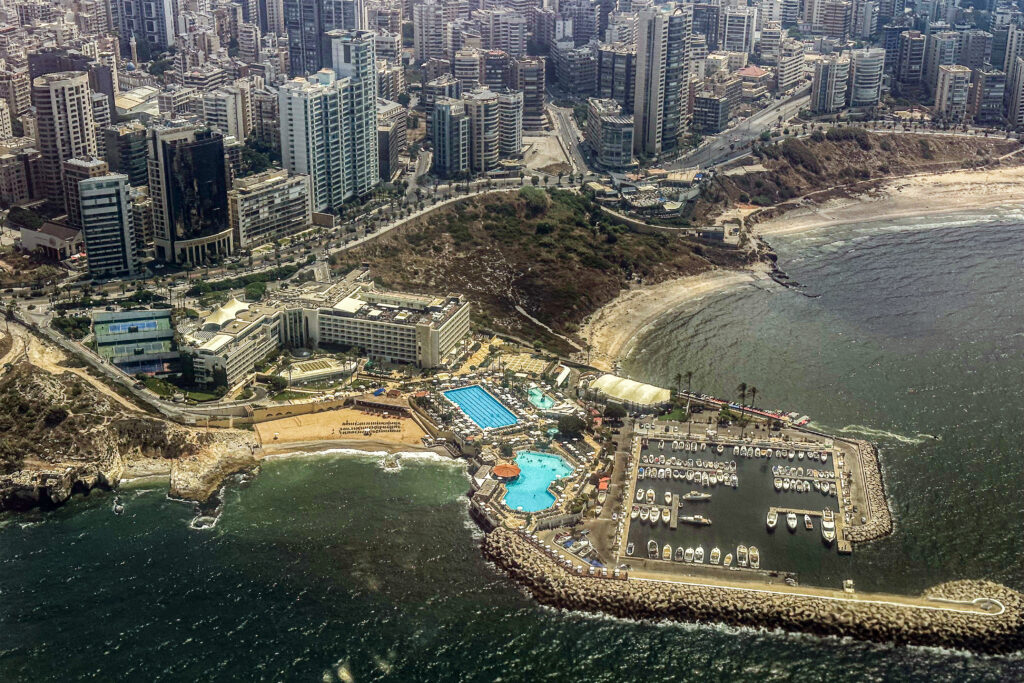
- ARAB NEWS
- 15 Jun 2025

As one of the oldest continuously inhabited countries in the world, Lebanon possesses an unmatched wealth of historical, cultural, and natural attractions that should position it as a premier tourist destination. However, the country has struggled to fully capitalize on its tourism potential in recent decades due to political instability and lack of a cohesive national strategy.
In 2019, before the COVID-19 pandemic, Lebanon welcomed 1.95 million international visitors, generating over $8 billion in tourism revenue and accounting for nearly 19% of the country’s GDP. This represented a 5% increase from 2018 and marked the sixth consecutive year of growth. The top source markets were Arab states like Saudi Arabia, the UAE, and Kuwait, as well as Europe, particularly France, Germany, and the UK.
Yet, the country’s tourism industry remains vulnerable and inconsistent. In 2020, visitor numbers plummeted by 80% to just 363,000 due to the pandemic’s devastating impact. And even in the record year of 2019, Lebanon trailed many of its regional neighbors – the UAE welcomed over 21 million visitors that year, while Egypt and Turkey attracted 13 million and 51 million respectively.
To propel Lebanon’s tourism sector to new heights and make it a pillar of the national economy, the government need to work closely with the private sector to develop and implement a comprehensive, long-term strategy. This should include targeted marketing campaigns to raise global awareness of Lebanon’s unique offerings, improvements to transportation infrastructure like airports and highways, and enhanced preservation and promotion of the country’s unparalleled historical and cultural assets.
Lebanon is home to an astounding 12 UNESCO World Heritage sites, more than any other country in the Levant region. These include the ancient Phoenician cities of Tyre, Byblos, and Baalbek, whose towering Roman temples and monuments stand as testaments to Lebanon’s 7,000-year-old civilization. The country also boasts breathtaking natural landscapes, from the snow-capped peaks of the Lebanon Mountains to the picturesque Mediterranean coastline.
However, many of these sites suffer from inadequate maintenance, accessibility issues, and lack of integrated tourism offerings. For instance, the ruins of Baalbek, one of the best-preserved Roman temple complexes in the world, draw thousands of visitors annually but lack nearby hotel accommodations, restaurants, and transportation links to create a seamless visitor experience.
Greater coordination between government bodies like the Ministry of Tourism and the private sector – including hoteliers, tour operators, and heritage preservation groups – is essential to address these challenges. Through public-private partnerships, Lebanon can develop new tourism products, improve site management, and implement innovative marketing strategies to attract a wider range of visitors.
Such collaboration could yield significant dividends. A 2018 report by the World Travel & Tourism Council found that every $1 invested in tourism in Lebanon generates $2.70 in total economic activity.
With the right strategy and public-private partnership, Lebanon can leverage its unparalleled historical and natural assets to drive sustainable economic growth, create jobs, and bolster its global reputation as a diverse, welcoming, and culturally rich destination.
In my opinion, a high-level action plan can boost Lebanon’s tourism but firstly establishing a national tourism council that will bring together key stakeholders from government ministries and develop a comprehensive 5-year tourism strategy for Lebanon, with clear targets. It is also important to improve tourism infrastructure by having the government invest in upgrading and expanding airport capacity, road networks, and other transport links to key tourism hubs.
Lebanon can boost its tourist numbers by developing new products such as innovative tour packages that combine Lebanon’s historical, cultural, and natural assets and unique experiential offerings like culinary tours, adventure travel and wellness retreats. Strengthening destination branding and marketing is also a necessity in order to develop a unified national tourism brand and marketing campaign, leveraging private sector expertise in advertising and digital promotion and participate in major international travel trade shows and events to raise Lebanon’s profile as a premier tourist destination.
Other components of the action plan include incentivizing private sector participation, enhancing sustainability and preservation, and improving data collection and insights on tourism statistics.
By aligning the strengths and resources of the government and private sector, this comprehensive action plan can help Lebanon harness its unparalleled tourism potential, create jobs, and position itself as a world-class travel destination.